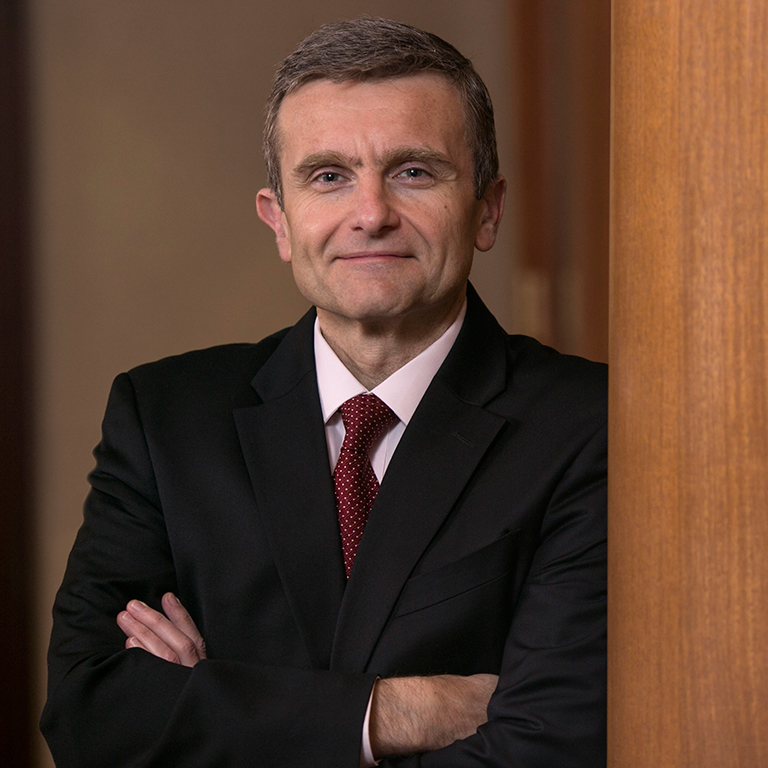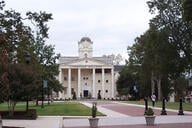You have /5 articles left.
Sign up for a free account or log in.
iStock
When news of a nationwide college admissions scam involving top universities sent shock waves through higher education circles last month and made headlines across the country, Paul Kaster didn’t understand what all the fuss was about.
“I was like, ‘Isn’t that legal?’” said Kaster, a sophomore at the University of Southern California, which was among the colleges implicated in the wide-ranging bribery and cheating scheme. “I thought it was an open secret that wealthy parents paid universities all the time to get their kids in.”
Like many other observers, Kaster noted how the children of university donors routinely end up attending those same universities. He initially saw little difference between parents paying large “fees” or donating large amounts of money to get their children spots at elite institutions.
“But once I learned the details, I saw it was more complicated,” he said.
The details aren’t that complicated for Brian Flahaven, senior director of advocacy at the Council for Advancement and Support of Education, an association for fund-raising professionals in higher ed.
Parents who paid hefty bribes to university athletic directors, coaches and test takers to get their children into elite colleges and universities did so in “an effort to cheat the system,” he said. People who donate to colleges are trying to help the higher ed system.
“Things are getting muddied,” he said. People should “not conflate this criminal activity with philanthropic gifts. The admissions scandal is a criminal case; it does not implicate university development officials.”
Fund-raising professionals nonetheless now frequently find themselves explaining this distinction to people unfamiliar with the world of college fund-raising. In the wake of the scandal, that distinction seems lost on critics of the role of money and wealth in college admissions.
The critics -- and there are many -- have long considered donations from relatives of applicants to be a pernicious and influential part of the admissions process. They see the bribery and fraud at the heart of the scandal as being on a continuum of the quid pro quo extended to rich donors and believe up-front donations buy access to colleges in much the same way as behind-the-scene bribes.
CASE has tried to drive the opposite message home since the U.S. Department of Justice announced the indictments of 50 people involved in the admissions buying. The association issued a strongly worded statement condemning the participants in the scheme and opposing a proposal by U.S. senator Ron Wyden of Oregon to end the tax break for college donations made "before or during the enrollment of children of the donor's family."
CASE’s statement said in part, “The actions of a handful of individuals should not sully the thoughtful and principled work of admissions and advancement professionals who work hard every day to sustain the quality and integrity of their institutions.”
The association's code of ethics, adopted in 1982, explicitly outlines these professionals’ “special duty to exemplify the best qualities of their institutions and to observe the highest standards of personal and professional conduct.”
According to the code, fund-raisers can ensure their and their institutions' integrity by not engaging in the following:
- "They do not grant or accept favors for personal gain, nor do they solicit or accept favors for their institutions where a higher public interest would be violated."
- "They avoid actual or apparent conflicts of interest and, if in doubt, seek guidance from appropriate authorities."
- "They follow the letter and spirit of laws and regulations affecting institutional advancement."
“Things are getting muddied,” said Brian Flahaven, senior director of advocacy at the Council for Advancement and Support of Education. People should “not conflate this criminal activity with philanthropic gifts. The admissions scandal is a criminal case; it does not implicate university development officials.”
Flahaven said the subject of donations comes up repeatedly in conversations and commentary about the scandal “as people have raised questions about advantages that the wealthy have in terms of sending their children to elite institutions.
“Where the advancement piece comes in is that people think this is just another example of how wealthy people operate,” he said.
The influence of major donors on higher ed in general, and on college admissions in particular, is such a sensitive issue that advancement and development officials at numerous colleges across the country, including elite institutions not implicated in the scandal, declined to discuss it.
Countering Flawed Conventional Wisdom
Amir Pasic, dean of the Indiana University Lilly Family School of Philanthropy, believes higher ed institutions should be addressing the scandal head-on.
“Colleges need to educate the community; they have to articulate the differences very clearly,” he said. “Wealthy people buying their way in is not what philanthropy is about. There’s a huge difference between donating and bribing. Both actions come from wealth, but they’re very different exercises of wealth. Of course donors get recognition and special treatment, but there’s a wall between that and the admission process.”
 Well-intentioned donors “would not want to corrupt that process if they really love the institution and want to support its mission,” he said.
Well-intentioned donors “would not want to corrupt that process if they really love the institution and want to support its mission,” he said.
Some donors clearly believe they can be both generous and strategic with their gifts and have no ethical qualm about supporting the institutions and helping their children at the same time.
Maria Laskaris, the former dean of admissions at Dartmouth College and now senior counselor at Top Tier Admissions college consultants, told the San Francisco Chronicle that students from wealthy families that can donate large sums of money have improved chances of being accepted by selective colleges.
“It’s not a guarantee of admissions for sure, but it is certainly something you’re made aware of,” she said. “Colleges are always in fund-raising mode.”
“Wealthy people buying their way in is not what philanthropy is about,” said Amir Pasic, dean of the Indiana University Lilly Family School of Philanthropy. “There’s a huge difference between donating and bribing. Both actions come from wealth, but they’re very different exercises of wealth. Of course donors get recognition and special treatment, but there’s a wall between that and the admission process.”
A Dartmouth spokesman declined to discuss how the admissions scandal is shaping public perceptions about fund-raising. Although the New Hampshire college was not implicated in the scandal, it issued a written statement outlining steps it is taking to prevent the kind of abuses alleged in last month's indictments.
And the University of Southern California and other institutions have announced punitive measures they would take against students determined to have been accepted at the colleges through fraudulent means.
At Brown University, which enrolls some of the wealthiest students in the country, there doesn't appear to be a solid wall separating admissions operations from development operations. The university allowed its fund-raising office to set up campus tours and meetings with faculty members for applicants whose parents are Brown alumni, or who are related to wealthy individuals or others that have relationships with university fund-raisers. In some cases, the faculty members were encouraged to write letters to the admissions office about their (positive) impressions of the applicants.
A Brown spokesman said late last month that the university would end these practices. He also said the university would stop providing free college counseling -- from counselors with extensive experience in admissions -- to the children of Brown alumni, faculty members and other employees.
On Tuesday, Brown's president, Christina Paxson, announced a review of policies on "fairness" in admissions and in student life.
"Preferential treatment, real or suspected, for students based on wealth or privilege is corrosive to our community," she said in a letter to the campus announcing the reviews. "We are looking carefully at all our practices across the university -- from alumni and parent engagement, to residential life, to academic concerns, to student conduct -- to make sure that favoritism has no influence on students’ experiences."
There’s no question that the admissions scandal is a public relations nightmare for the institutions that were implicated, and it is causing headaches even for those that were not. But there may be some positive long-term effects. The scandal occurred at a time of growing public awareness and discussions about income inequality in American society, including in higher ed. Those conversations have broadened beyond the confines of academia and Washington think tanks and now are occurring in the halls of Congress and at kitchen tables.
A Different Mind-Set, A New Generation
At the Lilly School, the self-described “world’s first school dedicated solely to the study and teaching of philanthropy,” the next generation of fund-raisers is learning about philanthropy as college students nationally are demanding more social accountability from institutional administrators and political leaders.
“There’s an emerging sense among this generation of students of how the privileges and advantages that come with being wealthy” disadvantage students from families with modest or very low incomes, Pasic said.
“Our students reflect in many ways the ethos on campuses today,” he said. “They’re more highly aware of wealth disparities and inequality. They’re allergic to social hierarchy and procedures that are not principled.”
Pasic cited as examples students protesting campus buildings and monuments named after racist politicians and military leaders who promoted exclusionary admissions policies in the past, and students calling out university administrators for granting wealthy and powerful donors too much say in academic affairs or athletic operations.
Pasic said college students today are very aware that their peers from wealthy families “are getting a leg up” because they attended expensive prep schools, had private tutors in high school or had opportunities to study or volunteer abroad or participate in summer academic enrichment programs.
“They understand how legacy admissions and philanthropy fits into this,” he said. “Students are looking at all of that and seeing it as betraying some of the principles that colleges and universities claim to value.
“They are increasingly asking in critical ways, ‘Who are the donors to my university? Where are the dollars being invested?’”
These concerns, which are also being explored at the Lilly School, will likely shape the thinking of students being trained for professions in philanthropy. A book that is popular among the students is Decolonizing Wealth, which offers an analytical perspective on whether philanthropy does a good enough job in critically assessing and addressing some of the inequities it may actually perpetuate.
“We’re a different institution,” Pasic said. “We’re not elite. We’re a public-serving, urban institution with first-generation students who don’t come from a long line of privilege … It’s a bit of a different world when you have that background and you go into philanthropy as a staff person … and are engaging with people from very different backgrounds.”
There’s a risk that students in that position can either become very subservient to that wealth or be dazzled by it, he said.
“Hopefully our students already understand that donations and bribes are the opposite of each other,” Pasic said. “The intent is almost diametrically in opposition.”
Pasic hopes the ethics courses that are part of the Lilly School’s core curriculum, and that undergraduate and graduate students are required to take, will help them stay focused on the larger mission of philanthropy -- to do good and make positive change -- after they’ve graduated and are working.
Ethics are also embedded in other courses, such as history, comparative civil societies, gender and social justice, and other electives, he said.
The school is planning a series of seminars for students and the public throughout this semester and next focused on "philanthropy and the public good." One session will examine the boundaries of philanthropy; another will consider the future of philanthropy.




